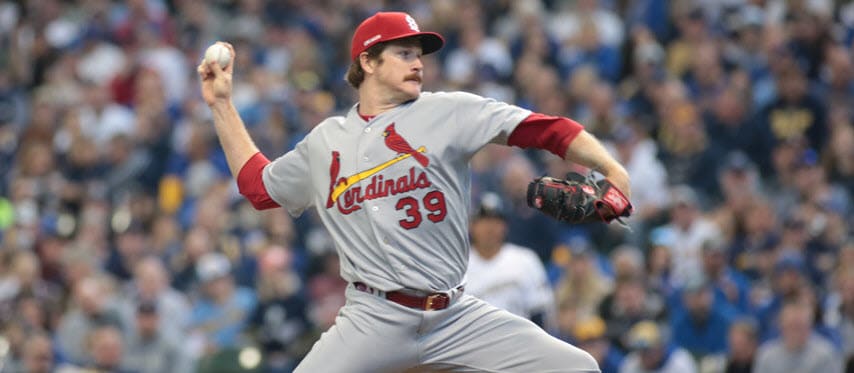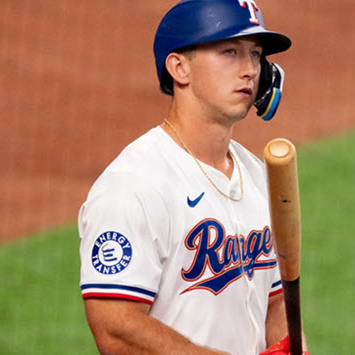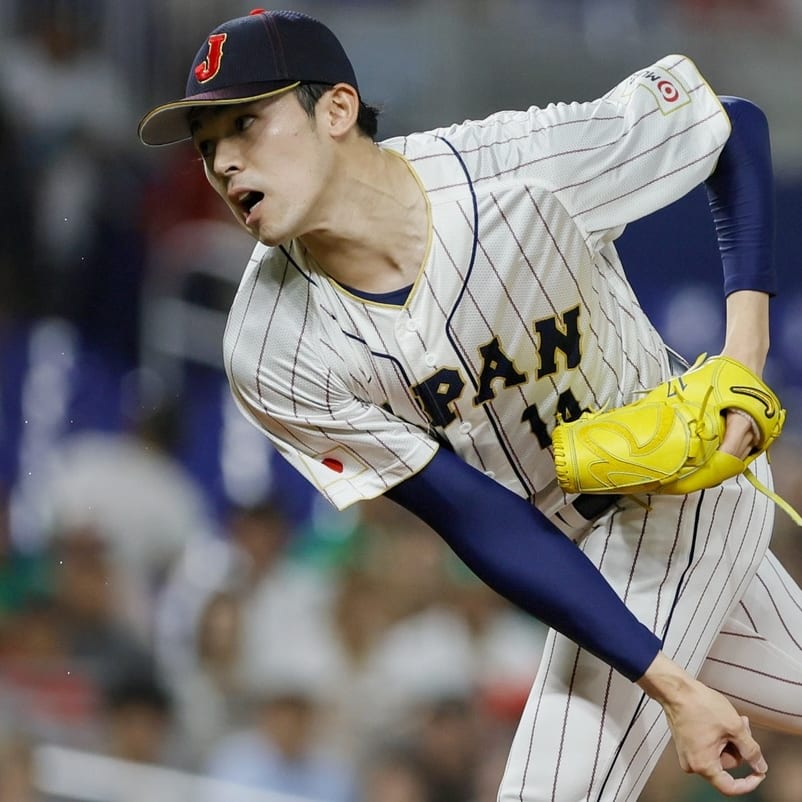This article is part of our Mound Musings series.
Playing favorable matchups has always been a part of successful fantasy baseball strategy, but I feel like the importance of identifying those good matchups is intensifying. Baseball has been trying to create more parity, but the results suggest it isn't working. The better teams, usually those with more money, are better, while the weakest teams are borderline awful. The more often you can get your pitchers facing those bad teams, the better. A favorable matchup doesn't always work out. A bad team can occasionally jump up and bite you (we always call it: "even a blind dog finds a bone sometimes"), but the odds are definitely in your favor.
Matchups can and will mean making choices. Is a good pitcher against a mediocre team a better option than a mediocre pitcher going against a horrible opponent? There are degrees of "good" and "mediocre," but in the past I probably would have opted for the "good" pitcher. Bad teams typically weren't that bad. Today, I'm not so sure.
Let's start by identifying the best teams for your pitchers to face. These are the "have nots" of MLB. Interestingly, the White Sox make the top target on my list. The simple fact is there is little else to fear in their lineup, meaning a run here or there could be enough for your pitcher to log a win. In fact, the Frail Hose are on pace to lose 140-plus games and have already been shut out an amazing eight times. Note, even
Playing favorable matchups has always been a part of successful fantasy baseball strategy, but I feel like the importance of identifying those good matchups is intensifying. Baseball has been trying to create more parity, but the results suggest it isn't working. The better teams, usually those with more money, are better, while the weakest teams are borderline awful. The more often you can get your pitchers facing those bad teams, the better. A favorable matchup doesn't always work out. A bad team can occasionally jump up and bite you (we always call it: "even a blind dog finds a bone sometimes"), but the odds are definitely in your favor.
Matchups can and will mean making choices. Is a good pitcher against a mediocre team a better option than a mediocre pitcher going against a horrible opponent? There are degrees of "good" and "mediocre," but in the past I probably would have opted for the "good" pitcher. Bad teams typically weren't that bad. Today, I'm not so sure.
Let's start by identifying the best teams for your pitchers to face. These are the "have nots" of MLB. Interestingly, the White Sox make the top target on my list. The simple fact is there is little else to fear in their lineup, meaning a run here or there could be enough for your pitcher to log a win. In fact, the Frail Hose are on pace to lose 140-plus games and have already been shut out an amazing eight times. Note, even though the Rockies aren't that scary right now, with warmer weather their home park is still a volatile place.
- Chicago White Sox
- Oakland Athletics
- Washington Nationals
- Miami Marlins
- Los Angeles Angels
- Boston Red Sox
- Pittsburgh Pirates
- Colorado Rockies (away from Coors Field)
Now we'll focus on what I feel are the worst teams for your pitchers to face. They all have a few things in common. They have a lot of talent throughout their lineups, making them dangerous even when a couple of big sticks have an off day. You will find a nucleus of big bats with enough protection to force pitchers to pitch to them, and they are explosive. Your guy might appear to be on cruise control, and all of the sudden, there's an explosion, resulting in an ugly inning. It might seem odd having a .500 team on this list (Texas), but collecting a W against them could destroy your ERA.
- Los Angeles Dodgers
- New York Yankees
- Baltimore Orioles
- Atlanta Braves
- Kansas City Royals
- Texas Rangers
- Cincinnati Reds
- Colorado Rockies (in Coors Field)
You might ask what makes a good matchup pitcher:
I thought about, and my choices for arms who profile well as possible matchup pitchers include guys like Michael King of the Padres, Miles Mikolas of the Cardinals, and Clarke Schmidt of the Yankees. They are not aces, but rather middle-of-the rotation types. There are several factors that help their case. First, they tend to be strike throwers who can routinely get deeper into games with lower pitch counts. They tend to be just average strikeout pitchers, but they typically generate a lot of weak contact, and they often benefit greatly from excellent defense behind them (they can escape a jam). And, their teams are capable of providing some run support.
Okay, that fits the description of a lot of mid-level arms. What really sets them apart is the ability to survive. Take a look at the matchup target list. Most of those weaker teams consistently fail to produce big innings. They see a pitcher get beat up by a good team. People don't think of them being fairly safe plays against a popgun offense. That's one reason our matchup pitchers can be had for a minimal expense.
Formulating a Plan:
Your ability to actively play matchups will depend a lot on a few league parameters. You need roster space to carry a couple extra starting pitchers, and/or liberal free agent access (your matchup pitchers basically become streamers). But it's not always as easy as it seems. Please note … Obviously, you want to avoid pitchers who simply aren't very good – they can get torched by weak hitting teams. A bad pitcher can turn offensive ineptitude into a juggernaut. It can be a pretty fine line. However, there may be pitchers on the waiver wire or via trade who have artificially inflated peripherals including poor results against those teams you want to avoid, but acceptable results against the weak teams. I'm not suggesting you bench your top-of-the-rotation starters – they need to be in your rotation pretty much every week (I often refer to them as "plug and play"), but you might be able to improve your overall pitching numbers with a couple judicious adds.
Some Notable Rotation Ramblings:
- Unfortunately, the Dodgers decided they needed to give Walker Buehler one more rehab start before he returns to their rotation. Okay, color me anxious, but I understand. In what was hopefully his final tune-up earlier this week, he allowed one run over five innings and struck out five against Triple-A Salt Lake.
- Houston's Framber Valdez made his first start in nearly a month and looked good doing it, as he allowed just a couple runs over five innings. He had been suffering from elbow soreness, but everything looked in order in his outing against the Rockies (okay, not the strongest opponent) in Mexico City.
- The Nationals have been playing better ball lately including exciting play and lots of base running. Add to that some improved pitching, including a little bit of a surprise in Jake Irvin. I watched part of his last start and he was getting ahead in counts and locating his pitches well. Keep an eye on him. Can he keep it up?
- Not surprisingly (I own him in a couple leagues), I am closely monitoring the progress of the Yankees' Gerrit Cole. He's still throwing off flat ground but has been extending the distance. He is expected to advance to mound work soon, and the team continues to hope for a return when eligible later this month.
- I have been a fan of Nick Lodolo for a long while, but I find myself jumping on the bandwagon more and more often these days. I tuned into his last start against the Padres just in time to see him serve up a long ball, and he then proceeded to slice and dice their lineup for seven innings including 11 strikeouts. Nice.
- Another pitcher closing in on an imminent return is the Orioles' John Means. He's been out all season to date with a forearm strain, but he looked up to speed in his last rehab outing, logging seven shutout innings, allowing just one hit while striking out eight. Perhaps most importantly, he tossed 95 pitches in the outing.
Endgame Odyssey:
Just one of the Astros' woes so far this year, Houston's Josh Hader blew another save recently. I can't explain it. On any given day, he has some of the best stuff in the game, then he inexplicably loses it. On the flip side, Oakland's Mason Miller is now throwing enough strikes to make his triple digit and then some fastball virtually unhittable. The A's aren't very good, but if they can get him a lead, he can protect it. In Arizona it looks like Kevin Ginkel will receive an extension on his current closing role, as Paul Sewald has experienced some soreness so the D-backs are slowing things down on his rehab. The Nationals' Kyle Finnegan does not have prototypical closer stuff, but as long as he keeps successfully logging saves, the job is his (he's hovering around the league lead). Minnesota's Jhoan Duran struggled a bit in his first rehab appearance for Triple-A St. Paul but bounced back nicely in his next outing by retiring all three batters and averaging 102 mph on his fastball. It bought him a ticket back to the Twins. With the Rays bullpen dinged up (Pete Fairbanks and Colin Poche are on the IL), Jason Adam logged his first save of 2024. He was a bit shaky doing it, but he is probably their best bet right now. Seattle had been a bit erratic in their use of Andres Munoz, providing a handful of save chances to Ryne Stanek while waiting for the return of Matt Brash. However, Brash suffered a setback in his elbow rehab, and Stanek has been serving as more of a traditional setup man so maybe they are coming around.










